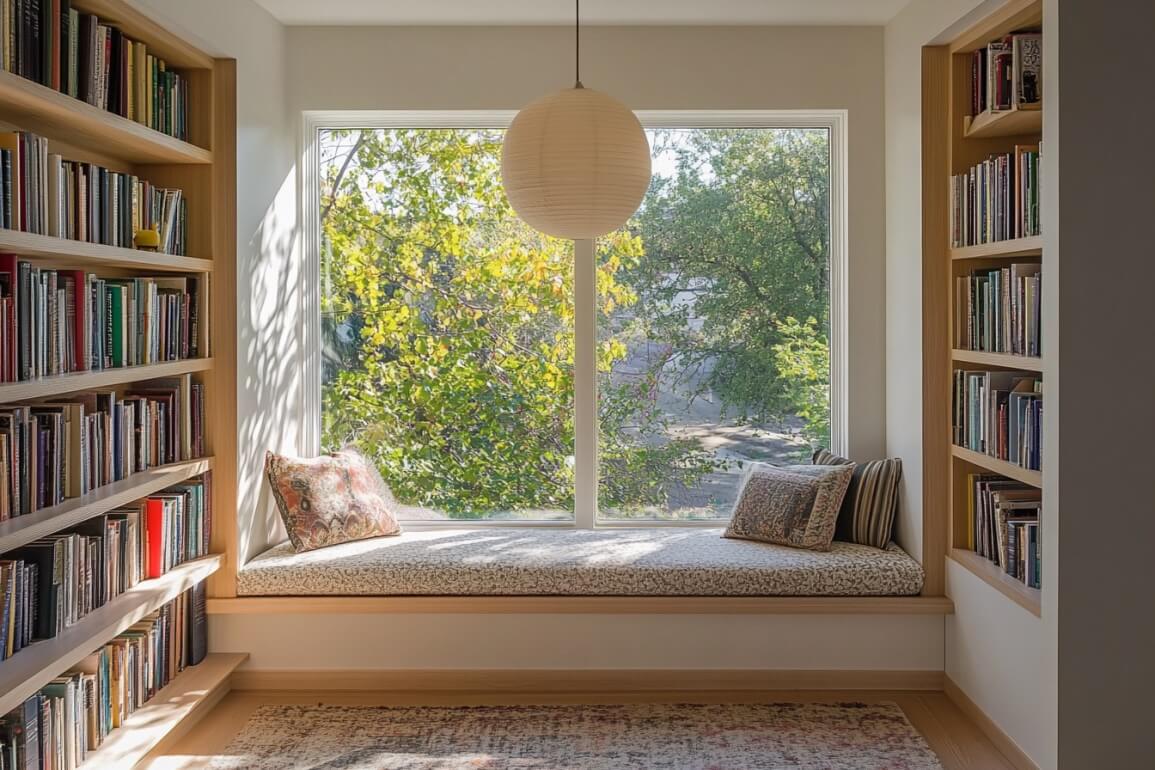Guide to Installing Replacement Windows
Windows play an essential role in every home. Beyond offering natural light and ventilation, they contribute to energy efficiency, security, and overall aesthetics. Over time, windows can become less effective due to wear, damage, or outdated technology, necessitating repair or replacement. This guide provides all the information you need to make informed decisions about your home’s windows, ensuring optimal performance and value.
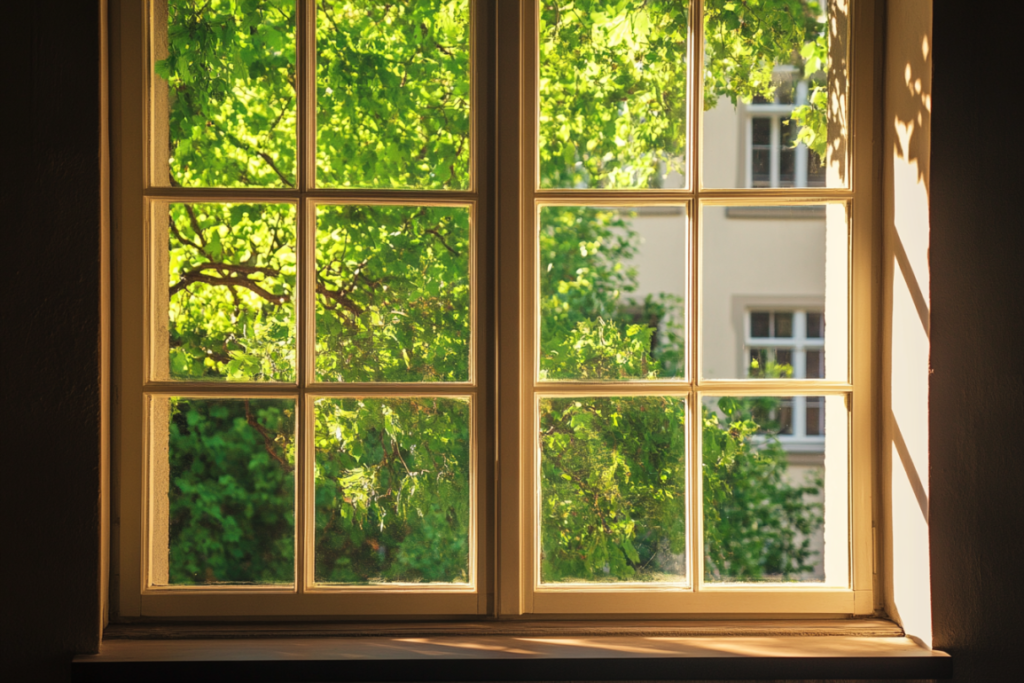
What Are Replacement Windows?
Replacement windows is a common term that simply means “new windows to replace your home’s current windows.” They are designed to fit into the existing window openings of your home. Unlike new construction windows – meaning installing a window where no window currently exists – replacement windows don’t require removing the home’s siding or altering the wall.
Key components of replacement windows include:
- Glass: You can choose between double- or triple-pane for better insulation and energy efficiency. In some cases, you may be able to replace just the window glass instead of the entire window.
- Frame: The window frame surrounds the glass and can come in many colors. Window frames can be made from materials like vinyl, wood, fiberglass, or aluminum.
- Screens: Window screens are optional and can be installed on your home’s exterior over the glass to protect against insects while enabling airflow.
- Hardware: Your window’s hardware might include locks, handles, and mechanisms that facilitate opening and closing depending on the window type you chose.
Frequently Asked Questions
Topics to Explore
How Windows Impact Your Home
Windows are more than just a way to let in light — they’re a critical part of your home’s infrastructure. In fact, the U.S. Department of Energy estimates that 30% of the energy you use to heat and cool your home is lost through windows. Properly functioning windows provide insulation, enhance security, and elevate your home’s curb appeal. When windows are damaged or outdated, the effects can ripple throughout your home:
- Energy Loss: Cracks, drafts, and single-pane designs allow heat to escape in winter and enter during summer, driving up energy costs.
- Comfort Issues: Poor insulation can create noticeable hot or cold spots in rooms.
- Security Risks: Broken locks or damaged frames can compromise home safety.
- Decreased Home Value: Aged, inefficient windows can make a property less attractive to potential buyers.
Frequently Asked Questions
What Are the Different Types of Windows?
Selecting the right window style is crucial for blending function, aesthetics, and practicality. There are more than 20 types of windows to choose from, including styles that open, fixed styles, and types that are good for especially large or small spaces. Here’s a closer look at the most common window types in U.S. homes:
| Window Type | Average Cost Range per Window |
|---|---|
| Single-Hung | $200–$600 |
| Double-Hung | $300–$800 |
| Casement | $300–$1,000 |
| Bay | $900–$5,000+ |
| Sliding | $250–$800 |
| Awning | $350–$1,200 |
| Picture | $400–$2,000 |
- Single-Hung and Double-Hung Windows: These popular windows have a classic design where one or both sashes move vertically. Single-hung windows slide up from the bottom. Double-hung windows slide up from the bottom and also slide down from the top. These relatively inexpensive windows are versatile and are ideal for many home styles.
- Casement Windows: Hinged on the side, casement windows open outward like a door, usually via a crank. Casement windows are rapidly gaining popularity. They offer excellent ventilation and modern aesthetics. Since there are no sliding components, homeowners like that views out these windows are uninterrupted.
- Bay and Bow Windows: Both bay windows and bow windows extend out from a home’s exterior, creating additional space and offering expansive views. They are popular in living rooms and breakfast nooks. However, they also tend to be the most expensive types of windows since they are made of several windows grouped together.
- Sliding Windows: Another popular option for homeowners who want lots of air ventilation, sliding windows open horizontally. They are perfect for wide openings or modern homes.
- Awning Windows: Like casement windows, awning windows are hinged and open outwards via a crank. However, instead of being hinged at the side, awning windows are hinged at the top, so they open outwards and upwards. This creates a natural awning effect — hence the window’s name — and makes this window type a good choice for homeowners who want air flow even on rainy days.
- Picture Windows: If you want to maximize your views and natural light, a picture window is a large, fixed pane that frames outdoor views. The glass is uninterrupted by lines since these windows don’t open. They do not meet egress requirements for bedrooms, so unless your bedroom will have multiple types of windows in it, these are best left for living rooms, dining rooms, and home offices.
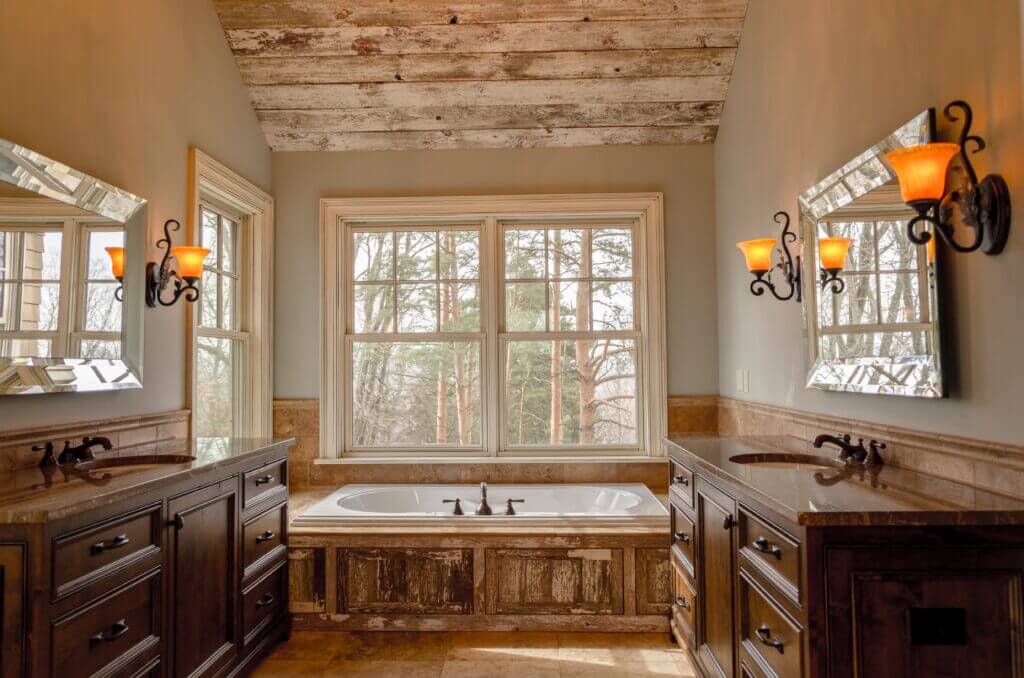
Frequently Asked Questions
Topics to Explore
Types of Window Frames
Window frames impact a window’s durability, appearance, and performance. Here are the most common frame materials:
| Frame Material | Average Cost Range per Window |
|---|---|
| Vinyl | $450 - $850 |
| Wood | $800 - $1,500 |
| Aluminum | $650 - $1,100 |
| Fiberglass | $900 - $1,400 |
| Composite | $1,000 - $1,800 |
- Vinyl: Affordable, low-maintenance, and resistant to moisture and pests, vinyl windows are the most popular frame material in the U.S. These frames are available in various colors but are less customizable than wood.
- Wood: Wood window frames offer a natural, timeless look. They are also excellent insulators. However, they require regular maintenance to prevent rot or warping, and they are also expensive.
- Aluminum: Strong and lightweight with a sleek appearance, aluminum windows are popular in more temperate climates. They conduct heat, so they may not be ideal for colder climates.
- Fiberglass: Highly durable and energy-efficient, fiberglass frames are a good choice for homeowners with a larger budget who want something that looks like high-end wood but requires less maintenance.
- Clad Wood: Also called composite frames, clad wood frames combine a wooden interior with a protective aluminum or vinyl exterior for the best of both worlds.
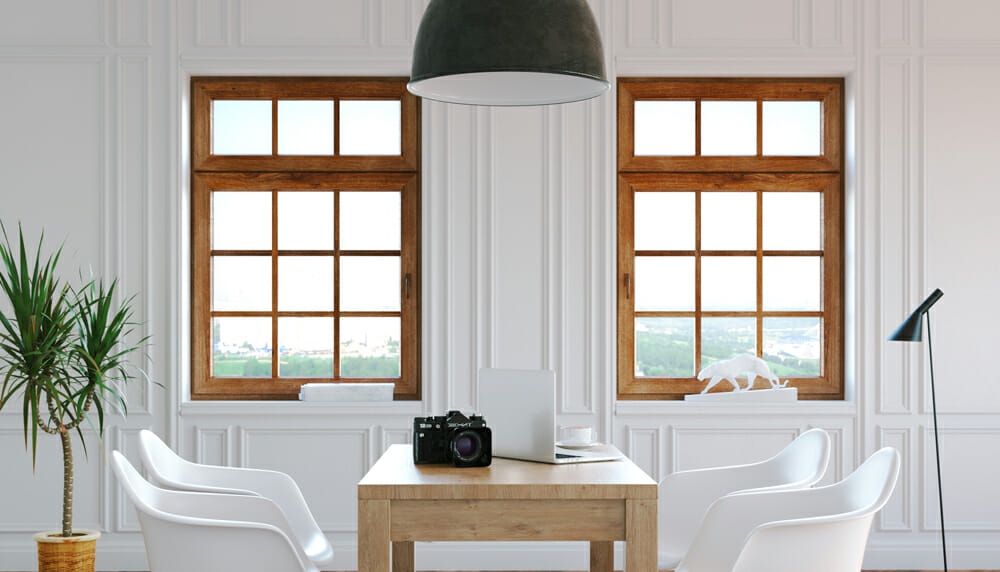
Topics to Explore
Types of Window Glass
Window glass significantly impacts a window’s performance, including its energy efficiency, safety, and aesthetics.
Your glass is one of the most important — and expensive — pieces of your window. It plays a large part in how energy efficient your window is as well as if it can withstand extreme weather like hurricanes. Here are the types of glass you will be able to choose from:
- Insulated Glass Units (IGUs): These windows feature two or more glass panes separated by spacers and filled with inert gas like argon or krypton for better thermal insulation.
- Low-E Glass: Low-emissivity (Low-E) glass has a microscopically thin coating designed to reflect heat while allowing light to pass through, reducing energy costs and preventing interior fading caused by UV rays.
- Safety Glass: This glass is harder to break and also designed to break in a safer manner.
- Tempered Glass: Shatters into small, less harmful pieces, making it ideal for safety-conscious areas like bathrooms.
- Laminated Glass: Made by bonding two layers of glass with a plastic interlayer, it remains intact even when broken, offering security and noise reduction.
- Privacy Glass: Frosted, tinted, or patterned glass obscures views while still allowing natural light to enter.
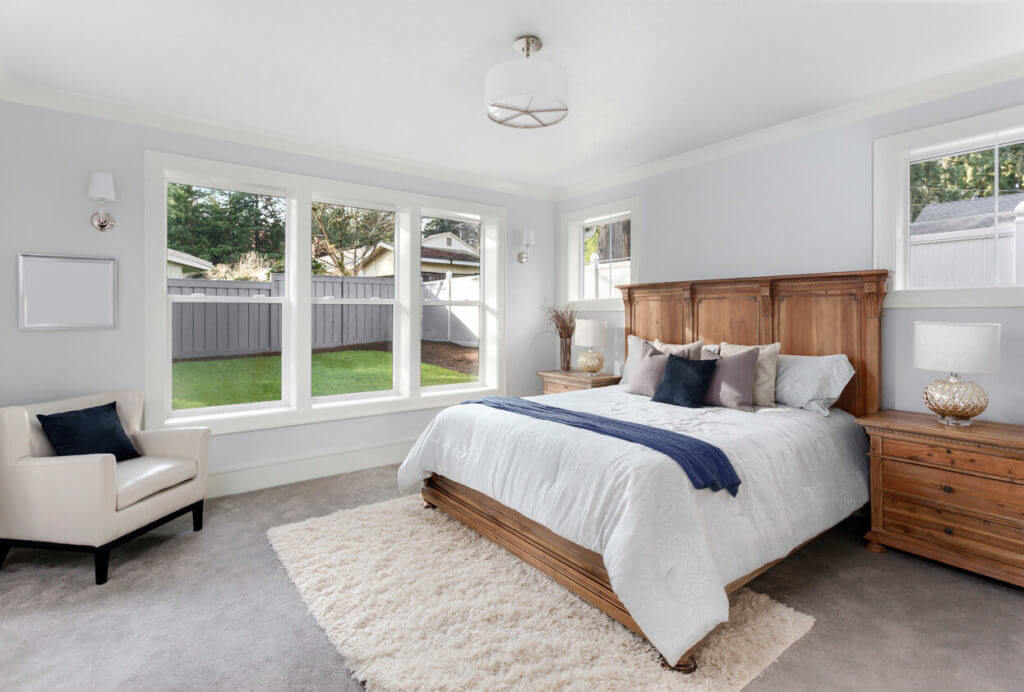
Topics to Explore
What Are Energy-Efficient Windows?
Energy-efficient windows are designed to minimize energy loss, helping homeowners save on heating and cooling costs while reducing their environmental impact. These windows use advanced materials and technology to offer superior insulation and thermal performance. They also are double- or triple-glazed. Glazing refers to how many layers of glass are in the window frame. Many people also call these double-paned and triple-paned windows.
Other features of energy-efficient windows include:
- Low-E Coatings: Reflect heat while allowing light in, enhancing thermal performance. This is the same as low-E glass, which we covered above.
- Gas Fills: Argon or krypton gas between panes further reduces heat transfer.
- ENERGY STAR Certification: Ensures the windows meet or exceed energy efficiency standards set by the Environmental Protection Agency (EPA).
Frequently Asked Questions
Topics to Explore
Average Window Replacement Costs
The cost of replacing a window varies widely based on several factors, including the window type, material, size, and location. On average, homeowners spend between $614 and $1,309 per window. As a general rule of thumb, the larger your window is, the more it will cost. Highly energy-efficient windows will also be more expensive, but that cost can be earned back over time with savings on utilities bills.
What Are the Best Window Brands to Consider?
Window brand matters because it reflects quality, durability, and warranty support. Reputable brands often use advanced manufacturing techniques, ensuring energy efficiency and long-term performance. Additionally, a trusted brand provides better after-sales support and warranty coverage, giving homeowners peace of mind.
Factors Influencing Brand Choice
- Product Range: Look for brands that offer a variety of styles, materials, and customization options.
- Energy Efficiency: Some brands specialize in ENERGY STAR-certified products or innovative energy-saving technologies.
- Price vs. Value: Premium brands like Andersen or Marvin come with higher price tags but offer exceptional craftsmanship and durability. Other brands like Pella or JELD-WEN provide good value for the cost.
Frequently Asked Questions
Common Window Parts to Know
Understanding the components of a window helps you make informed choices during replacements or repairs. We’ve covered many of these terms above, but here is a quick guide for easy reference. Key parts include:
- Frame: The structural border that holds the glass. Common materials include wood, vinyl, aluminum, and fiberglass.
- Sash: The movable part of the window that holds the glass panes in place. Found in styles like double-hung or casement windows.
- Glass (or Glazing): The panes in the window, often insulated for energy efficiency.
- Hardware: Includes locks, handles, and cranks for functionality and security.
- Weatherstripping: Seals around the sash or frame to prevent drafts and improve insulation.
- Spacer: Found in multi-pane windows, spacers create an air or gas-filled gap between panes to enhance insulation.
Topics to Explore
What Are Standard Window Sizes?
Standard window sizes vary by window type, but they’re often designed to fit common dimensions for residential homes. For example:
- Single- and Double-Hung Windows: Widths range from 24 to 48 inches; heights range from 36 to 72 inches.
- Casement Windows: Typically 16 to 24 inches wide and 32 to 72 inches tall.
- Picture Windows: Larger sizes, often starting at 36 inches wide and up to 96 inches or more.
How Size Impacts Cost
Larger or custom-sized windows require more materials and labor, increasing costs. Additionally, oversized windows may require structural modifications, which can further raise installation expenses.
Importance of Measuring Accurately
Accurate measurements ensure the replacement window fits snugly, preventing energy loss and operational issues. Always measure both width and height in three places (top, middle, and bottom) and use the smallest measurement.
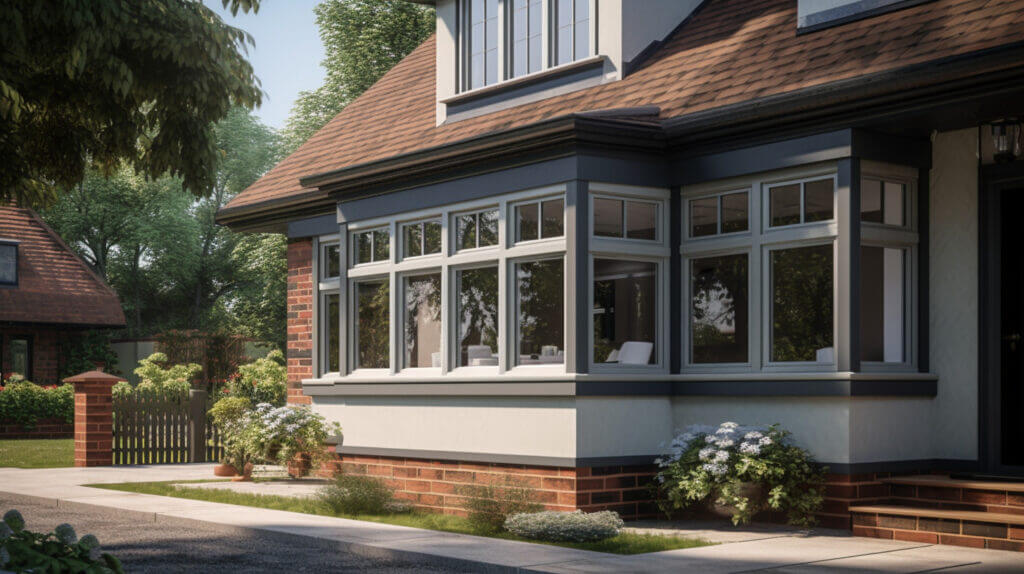
Topics to Explore
How to Choose a Window Replacement Contractor
Hiring the right window contractor is critical to ensuring your window replacement project is done efficiently and professionally. Make sure any contractor you are considering has the following:
- Licensing and Insurance: Confirm the contractor is licensed and insured to protect against liability.
- Experience: Ask about similar projects they’ve completed and request references.
- Detailed Quotes: Ensure the quote includes labor, materials, cleanup, and any additional costs.
Checklist of Questions to Ask
- What type of warranty do you offer?
- Can I see examples of your previous work?
- Are your installers certified or trained by the manufacturer?
Topics to Explore
Common Home Window Problems and How to Fix Them
Windows are a years- to decades-long investment, and they’re bound to experience a problem or two during that long period of time. Here are some of the issues you’re most likely to encounter and how to fix them:
- Drafty Windows: Use weatherstripping or caulk to seal any air leaks you find.
- Broken Seals: Replace the glass or sash if condensation forms between panes.
- Sticking Sashes: Lubricate tracks or check for debris causing obstruction.
- Minor Water Leaks: Inspect and reseal around the frame.
When to Call a Professional
- Glass is cracked or shattered.
- Windows show signs of rot or warping.
- Recurrent issues despite repairs.
Frequently Asked Questions
What to Do Once Your New Windows Are Installed
Once you’ve replaced your windows, you want to care for your investment properly to ensure it functions as best as possible and lasts for many years to come. Here are the routine maintenance tips we recommend:
- Cleaning: Use a mild soap solution for glass and frames. Avoid abrasive cleaners.
- Inspecting Seals: Check annually for cracks or gaps in weatherstripping.
- Lubricating Hardware: Apply silicone spray to moving parts to ensure smooth operation.
- Avoiding Damage: Do not use sharp tools or harsh chemicals on the glass or frame.
Frequently Asked Questions
Ready to get your project started?
Let us find the best Windows pros in your area, then easily request quotes, book a contractor, and get the job done. It's that easy.

Homeowner Resources
Here are the top articles that homeowners found useful when planning their Windows project and navigating the contractor hiring process.
- Cheapest Windows: Types, Costs, and Money-Saving Tips
- Do I Need a Permit to Replace Windows?
- When Should You Repair vs Replace Your Windows?
- A Window Replacement Financing Checklist for Homeowners
- Best Windows for Small Bathrooms
- How to Create a Budget for Your Window Replacement
- Tips for Negotiating Cost with Window Contractors
- What to Expect During a Window Replacement
- Understanding Window Warranties
- How to Hire the Best Window Replacement Contractor
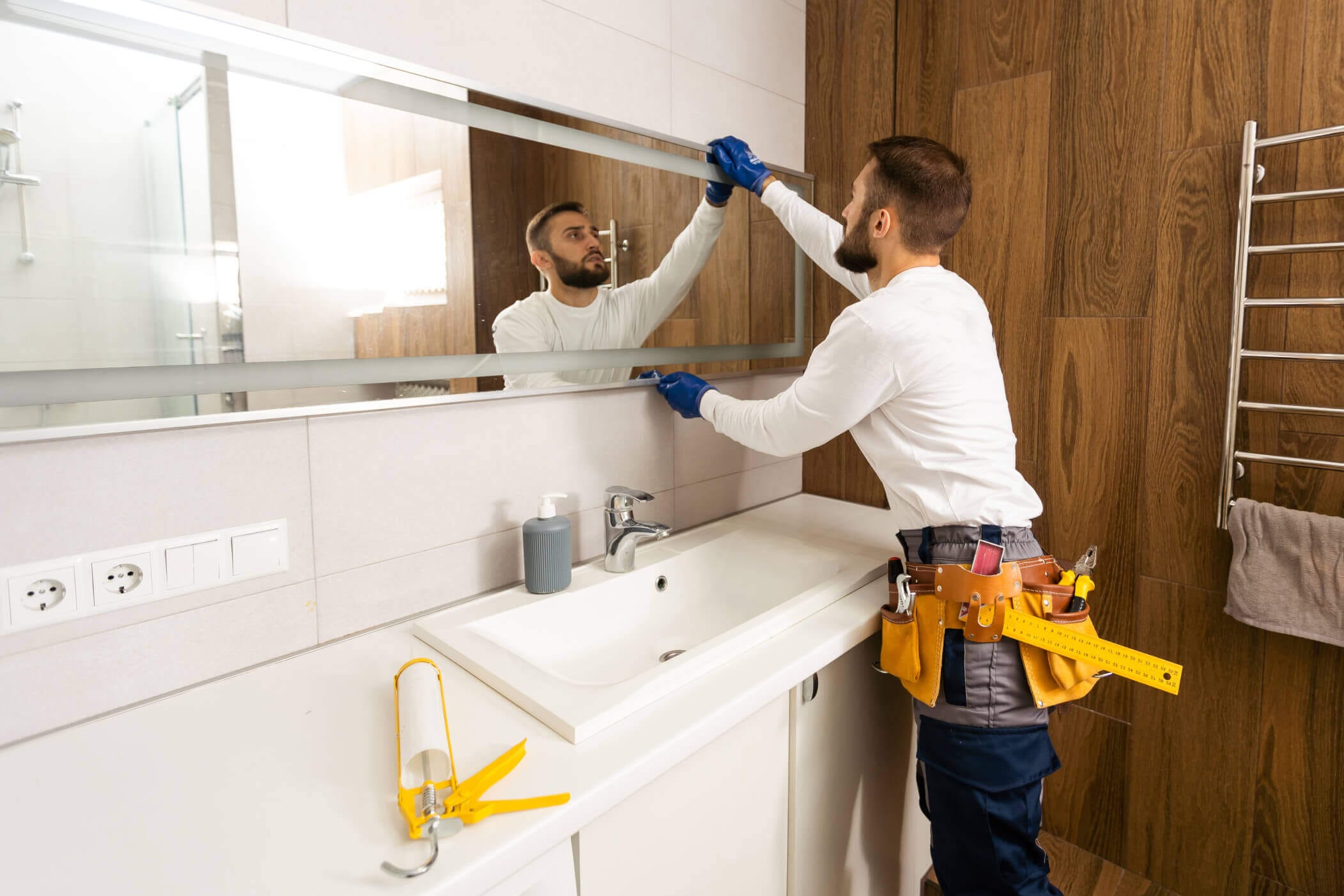
Real Stories, Real Success
See how our solutions empower homeowner projects and experiences.
